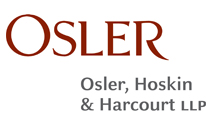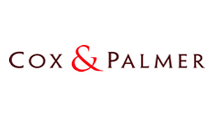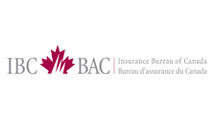
Mediation in the UAE
By Wolf von Kumberg, BA, LL.B, LL.M, FCIArb, AAA Master Mediator

This article discusses the use of mediation in the UAE. Unlike what we see in Canada, there has been historic reluctance to use mediation in that region in the past. There are, however, indications that things are starting to change. As mediation takes hold, it remains to be seen whether mediation in the region will develop along similar lines to what we see in Canada, perhaps with its own unique Middle Eastern nuances.
Having practised law as a young lawyer in Ontario, I saw first-hand the early development of mediation in that jurisdiction. I then spent much of legal life as International Counsel for several global Aerospace Technology companies looking after their legal activities in the Middle East. Over a period of some 25 years, I saw the development of ADR in the region. Largely, the process used was international arbitration given that in most cases an ICC or LCIA provision would be accepted by the local counterparty in a disputes clause. Whenever I attempted to discuss the inclusion of a mediation clause, however, this suggestion was rejected. Mediation was not seen as an acceptable dispute resolution mechanism, not being fully understood, or worse, not being trusted as a credible means of resolving commercial disputes.
This attitude, particularly in the UAE, has changed significantly over the past five years. As a full-time neutral sitting both as an arbitrator, but especially as a mediator, I have spent much of my time in the UAE advocating for the use of both ADR methods. In particular I have been working in Abu Dhabi with the Abu Dhabi Global Market (ADGM) and the Registrar of its Court Linda, Fitz-Alan, to bring mediation into use as a normal part of the dispute resolution mechanism. We have held seminars for local law firms to help raise awareness of mediation, and together with the Centre for Effective Dispute Resolution (CEDR), held mediator training courses at the ADGM helping to establish both a commercial mediation panel and a separate Investor State Mediation panel located there. This work has created a lot of newly found interest in the process and how it might best be used in commercial disputes.
The Singapore Mediation Convention has itself been a catalyst for Governments in the region, bringing attention to and interest in commercial mediation. The Convention, by its mere existence, has leant credibility and trust to the mediation process, in the eyes of States. The Middle East has very quickly recognised the benefits to international commerce in signing and ratifying the Convention. Both Saudi Arabia and Qatar were early signatories and ratifiers. The UAE has since announced that it too will sign the Convention and Oman has indicated that it may do so as well. With this State recognition that mediation is in fact a credible process for cross border dispute resolution, the interest in mediation in the UAE has picked up enormously.
This interest is demonstrated through the fact that the UAE Government at a Federal level first passed a mediation law in 2001 (Federal Law No.6 of 2021), which has now been expanded on through Federal Decree Law No. 40 of 2023, concerning Mediation and Conciliation in Civil and Commercial Disputes. This law enshrines “without prejudice communications” which are essential to mediation but were not recognised as a principle in the civil procedure law. It therefore provides a bedrock, together with confidentiality, for mediations to take place in the UAE. It further deals with the establishment of mediation centres across the UAE, together with court enforcement provisions of mediated settlements.
In addition to the law, there is newfound interest in the promotion of mediation by local institutions. The local courts in Abu Dhabi and in Dubai have established a mediation service for all small claims court matters. There is also a requirement that all claimants against the Dubai Government must first attempt mediation, before they can bring a claim to court. The Dubai International Mediation Centre (DIAC) has embraced mediation, and I assisted in the writing of its mediation rules which were promulgated in October 2023. The first mediations under these rules are already taking place. Both the Dubai International Financial Centre (DIFC) and the ADGM in Abu Dhabi have now included a mediation service in their court systems. The Dubai Chamber of Commerce has implemented a business-to-business mediation service open to all members.
Mediation in the UAE, as opposed to mediation in Canada is still developing. While there is interest in mediation, the users, lawyers, and institutions are still building capacity for it to be used effectively. There is still a need for trained and skilled mediators that are familiar both with the Arabic language and local culture. Relationship building is a key cultural ingredient and one that is perhaps more important than in Canadian mediations, where a more pragmatic contract-focused commercial approach is utilised. Another key element that has just been introduced through the Mediation Law is that “without prejudice” negotiations are now being protected. This privilege is a given in the Canadian mediation process, but something that still must be enshrined in local mediations. As mediation takes hold, it is anticipated that it will develop along similar lines to that we see in Canada, but with its own unique Middle Eastern nuances. This development includes the use of mediation in family business disputes, which businesses make up a great portion of the major companies in the region. There will also be the need to emphasise relationship building and dialogue, which are key to traditional dispute resolution mechanisms (such as the Majilis) in the Region.
The interest in and role of mediation has expanded exponentially since my first exposure to dispute resolution in the region. From my own experience and looking at the economic development taking place there, mediation and its application are sure to grow further in the future.
Wolf von Kumberg is a mediator and arbitrator of international disputes.












